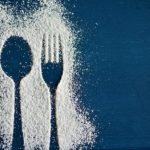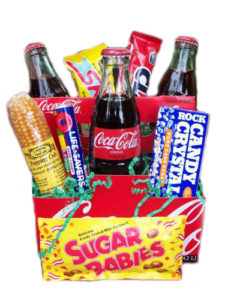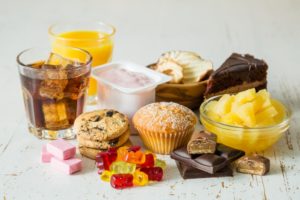You Are So Sweet!

You Are So Sweet!
Why, thank you. ![]() I think. “Americans are Eating Too Much Sugar”! Reports from the News media, scientific reports and abstracts, the WHO, CDC, and various agencies that have association attached to their name have warned us. Obesity rates of adults and children are at an all time high. Hey, are you seeing this? How did this happen? Why are we consuming so much Sugar? Are you buying more Sugar? I’m not buying more, if anything, I have been buying less sugar? Did someone contact the food companies and say, “this syrup, ketchup, soda, cake, pie, peanut butter is just not sweet enough”? Let’s take a look at some data. According to Sugar Science.ucsf.edu
I think. “Americans are Eating Too Much Sugar”! Reports from the News media, scientific reports and abstracts, the WHO, CDC, and various agencies that have association attached to their name have warned us. Obesity rates of adults and children are at an all time high. Hey, are you seeing this? How did this happen? Why are we consuming so much Sugar? Are you buying more Sugar? I’m not buying more, if anything, I have been buying less sugar? Did someone contact the food companies and say, “this syrup, ketchup, soda, cake, pie, peanut butter is just not sweet enough”? Let’s take a look at some data. According to Sugar Science.ucsf.edu
- Added sugar is hiding in 74% of packaged foods
- Americans consume 57 pounds of added sugar each year, on average.
- (AHA) recommends no more than:
- 9 teaspoons (38 grams) of added sugar per day for men
- 6 teaspoons (25 grams) per day for women.5
- limits for children vary depending on their age and caloric needs, but range between 3-6 teaspoons (12 – 25 grams) per day.
- the average American consumes 17 teaspoons (71.14 grams) every day.

In a study by The American Journal of Clinical Nutrition, 2004 (15 years ago) the relationship between HFCS intake and the development of obesity increased at the same rate. It was an increase of 1000% between 1970 and 1990. This increase exceeds any other food or food group. At that publishing 2004 they projected that HFCS represents>40% of caloric sweeteners added to foods and beverages. It is now (2019) and HFCS is in 80% of packaged and process foods.
The competition among soft drink companies is well documented. These Food & Beverage companies know how to advertise for our dollars and $ense! They know that sugar is highly addictive. “Sugar is an opiate for emotional pain” so says, psychologicalscience.org. Food & Mood are influenced by sugar. Another report said sugar is 8x more addictive than cocaine.
For those of us who have lived a pristine life on another planet, emotional hurt, pain may not be a problem. As for the rest of us, no money or desire for cocaine? ‘Have a Coke and a smile’. Grab a candy bar, cake, sugary snack. Ok, all better?
Seriously, in an article by, The Guardian, internet magazine,
“Consuming sugar produces effects similar to that of cocaine, altering mood, possibly through its ability to induce reward and pleasure, leading to the seeking out of sugar,” they write, citing rodent studies which show that sweetness is preferred even over cocaine, and that mice can experience sugar withdrawal. Speaking, to the Guardian, DiNicolantonio said that the consumption of sugar was a grave concern. “In animals, it is actually more addictive than even cocaine, so sugar is pretty much probably the most consumed addictive substance around the world and it is wreaking havoc on our health.”
OK, opposing this theory is Psychiatrist, H. Ziauddeen who co-authored a research study using mice and found that, while the “The rodent studies show that you only get addiction-like behaviors if you restrict the animals to having [sugar] for two hours every day. If you allow them to have it whenever they want it – which is really how we consume it – they don’t show these addiction-like behaviors,” he said.
Have we really developed a “Sweet Tooth” or have we been Given one? Is it just the Sugar or is HFCS High Fructose Corn Syrup a Co-conspirator. This substance, comes from Corn but undergoes a process that requires an enzymatic infusion that replicates sugar= Glucose and fructose. It is 1.5 times sweeter than sugar. HFCS spikes blood sugar faster and higher than table sugar.It is used by food manufacturers to augment sugar. It is cheaper and sweeter than sugar. Do we really need Both? Like you need syrup & jelly on your pancakes? I’m Just Sayin’.
Has the damaged already been done? We have been decades with this extra sweetener, for the most part, unknowingly. We will have to re-program the body or go on a 40-Day Fast just to regulate the body back to whatever normal is now. The ravages of HFCS and sugar are taking a toll in all communities is reaching epidemic proportions. The CDC reported the stats below:
Nearly one third of the U.S. population is now Diabetic, or Obese.
39.8% (2015-2016) Adults over 20 yrs old are Obese.
71.6% (2015-2016) Adults over 20 yrs old are Overweight
There are more cases of children being diagnosed with obesity and weight issues. Type 2 diabetes, once believed to be a adult-onset disease, is now inching its way into the lives of children and teens. Inactivity and sugar-laden snacks, drinks and foods are contributors.
No one segment of the population has been spared. All ethnic groups, races and religions are affected. More to come about this topic. A heads up. Just because the package says No HFCS doesn’t mean there’s none in the product. It has other names you may not recognize. There are at least 57 other names. Here’s the short list.
Deceiving Names for High Fructose Corn Syrup
Fruit fructose
Crystalline fructose
Turbinado sugar
Maltodextrin
Glucose/fructose syrup
Tapioca syrup.
Data from: Live in the Now-Internet magazine (Healthy Living starts Here) thank you.
We must get the word out and talk about the health effects of over consumption of Sugar, sweeteners & HFCS. The effects of these products are responsible for:
Brain fog,
Insulin resistance,
Diabetes,
Depression,
Anxiety,
Weight gain, Risk of heart disease and cancer risks.
In upcoming issues we will explore the labels on soda and juice and what may be behind the increase in sugar and carbohydrates.
For now, Please read the labels on everything! Please leave a comment.©
“Go To the Source”
⦁ https://www.marketwatch.com/story/americans-eat-way-too-much-sugar-heres-where-it-comes-from-2016-01-08
⦁ https://www.theguardian.com/society/2017/aug/25/is-sugar-really-as-addictive-as-cocaine-scientists-row-over-effect-on-body-and-brain
The American Journal of Clinical Nutrition⦁ , Volume 80, Issue 4, 1 October 2004, Pages 1090, https://doi.org/10.1093/ajcn/80.4.1090
⦁ https://www.foodbusinessnews.net/articles/12931-the-stubborn-truth-about-caloric-sweetener-usage-and-obesity
⦁ Written by Sara Ipatenco; Updated December 27, 2018https://healthyeating.sfgate.com/much-highfructose-corn-syrup-consume-9234.html


